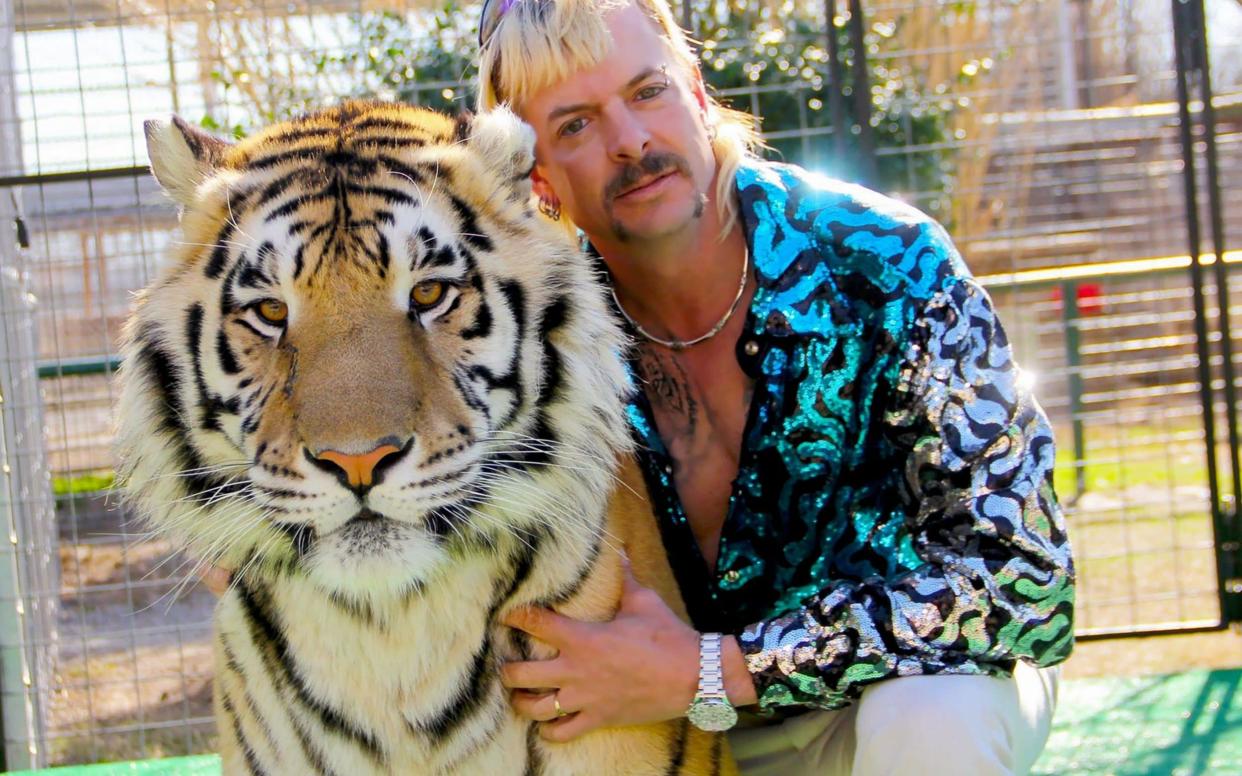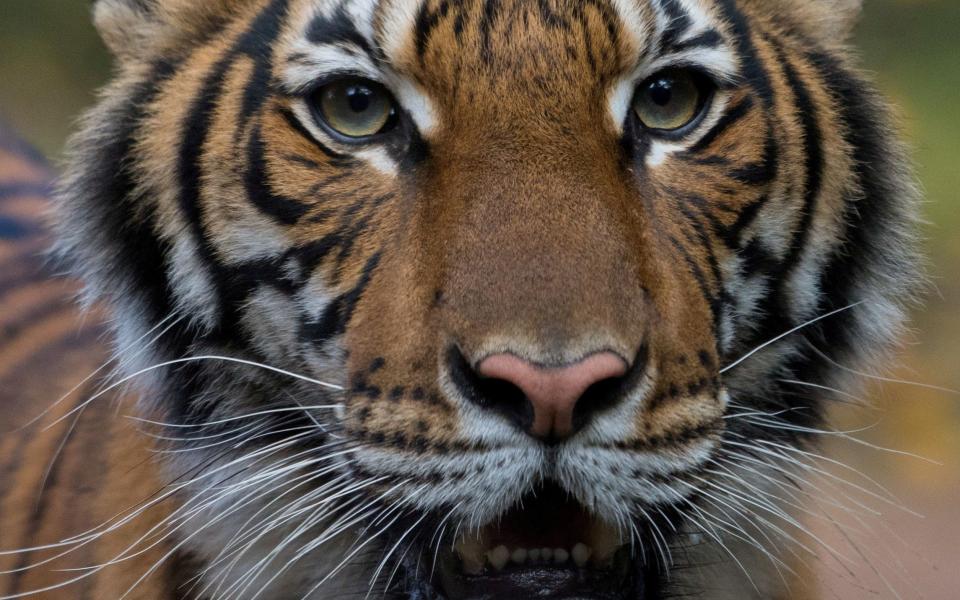Britain's 'Tiger King' could live on your road as it is revealed 300 dangerous big cats kept as pets

- Oops!Something went wrong.Please try again later.
When the tale of Tiger King hit screens on Netflix last year, people across the world were shocked that Joe Exotic could keep so many dangerous big cats in his back garden.
However, the same is happening across the country in the UK - and there is a chance our answer to the wildcat wrangler might be living down the road from unsuspecting Telegraph readers.
Over 300 dangerous big cats are being kept without zoo licences across the country, new analysis by the Born Free Foundation has found.
While the government plans to ban people from keeping primates as pets, the regulations will not currently cover other wild animals.

The Telegraph understands sources inside Number 10 are pushing for the government to include dangerous wild animals in the legislation, as many have complex needs and will face welfare concerns if kept without regulation and in improper conditions.
Experts at Born Free found that nearly 4,000 dangerous wild animals are being kept on private land without zoo licences.
This includes 320 wild cats (including 61 big cats – 11 lions, 8 tigers, 11 leopards, 18 pumas, 10 cheetahs, 2 ligers and 1 jaguar), 274 primates (including over 150 lemurs), 158 crocodilians, 508 venomous snakes (including 57 diamondback rattlesnakes), 332 scorpions, 106 venomous lizards and two elephants.
Tigers are kept in Oxfordshire and Staffordshire, and in Cornwall, there are six clouded leopards being kept as pets, as well as two puma and seven lynx. Lions are kept in Oxfordshire, Nottinghamshire and Staffordshire. Wiltshire is one of the dangerous animal hotspots, with several wildcats and venomous snakes being kept on private land. Lincolnshire boasts camels, Aberdeenshire has a wide array of big cats including servals and lynx.
The number of dangerous wild animals being kept in the UK seems to be on the rise. In 2000, the majority of these species kept in the UK were for farming - including ostrich, boar and bison, and only 1,323 (11 per cent) were exotic pets. In 2020, this had almost doubled to 2,100, making up 56 per cent of licences.
Dr Mark Jones, Veterinarian and Born Free’s Head of Policy, explained: “Born Free has been collating and analysing DWA data for over 20 years. Since the millennium the wild animal welfare and conservation charity has seen a dramatic increase in the number of exotic pets in private ownership, including a 94 pe cent increase in the number of venomous snakes, 57 per cent increase in wild cats, 198 per rcent increase in crocodilians and over a 2000 per cent increase in scorpions. However, these figures are likely to represent only the tip of the iceberg. They only record those animals being kept and registered with a DWA licence. Born Free believes that many additional dangerous wild animals are being kept without a licence".
It is believed social media could play a part in the increase, with many Instagram and TikTok accounts showing off large exotic cats and venomous snakes.
Currently, under the Dangerous Wild Animals Act 1976, anyone in Britain can keep a dangerous wild animal as long as they obtain a licence from their Local Authority. The licencing process requires the applicant to demonstrate that their animals are properly contained so as to prevent escape and protect the public, but this does little to ensure the welfare of the animals or the protection of the owner or anyone else visiting the property.
Many highly dangerous animals are not covered under the Act, including komodo dragons, meaning councils could be unable to find out if they escaped and caused danger to the public.
Dr Jones added: “The UK likes to claim to be at the forefront of efforts to protect nature and improve the welfare of animals, yet our legislation governing the keeping of and trade in exotic pets is woefully outdated. While the Government’s recent proposal to ban the keeping of and trade in primates as pets is a welcome first step, there are many other species that need to be protected from this form of exploitation. The Dangerous Wild Animals Act should be overhauled as a matter of urgency, in order to phase-out the private keeping of and trade in those species that clearly don’t belong in people’s homes.”

